10 games that shook PC gaming
From SimCity to World of Warcraft

Introduction
From the Gravity Gun being thrust into your hands in Half-Life 2 to wiping out an entire team of terrorists before defusing a bomb in Counter-Strike 1.6 for the first time, PC titles have a knack of etching seminal moments into gaming history.
And with so many new ways to game now thanks to the ever-evolving PC gaming landscape, titles on the platform continue to drastically change compared to the days of old. What follows is one man's attempt to slim down the games that shook the PC forever down to 10 titles. Here goes nothing.
- Check out the rest of our PC Gaming Week coverage
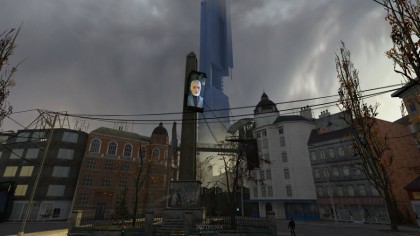
Half-Life 2
Genre: FPS
Publisher: Valve
Released: 2004
How it shook PC gaming: You couldn't get your crowbar-wielding mitts on Half-Life 2 without downloading Valve's content platform Steam first. Not only did it feature the Gravity Gun, it had some of the best storytelling in PC game history.
The original Half-Life was an incredible game with fantastic gameplay, pacing and otherworldly enemies. Like its predecessor, Half-Life 2 throws you straight into a dramatic story, following Gordon Freeman's adventure in City 17. While strong storylines are prevalent in all the Half-Life titles, it's not the only thing that makes this game important. Equally vital is the Half-Life legacy.
Half-Life 2 was the first game to be sold on Valve's online game store, Steam. The graphics engine used in Half-Life 2, called Source, was also used in other hugely popular Valve titles: Team Fortress 2, Counter-Strike: Source and Left 4 Dead (and its sequel Left 4 Dead 2), in addition to Titanfall. Valve recently announced that a Source 2 engine is on the way, which drummed up plenty of excitement, showing just what impact the original made 11 years ago.
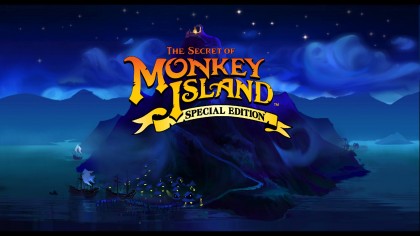
The Secret of Monkey Island
Genre: Adventure
Publisher: LucasArts
Released: 1990
How it shook PC gaming: A classic adventure, the Secret of Monkey Island was one of the first point-and-click games that allowed the player to choose between topics listed for discussion in a dialogue tree (instead of typing in commands manually), which had a huge influence on the adventure games that followed.
The Secret of Monkey Island played very much like an old style text-based adventure game, but had (relatively) pretty graphics and video cut-scenes to make things more interesting. It also took advantage of the (then) capacious CD-ROM storage limit.
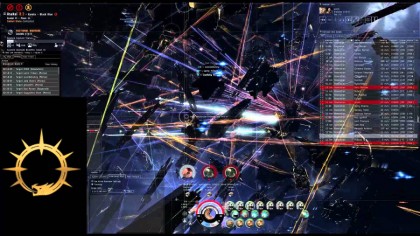
EVE Online
Genre: MMORPG/Space Sim
Publisher: CCP Games
Released: 2003
How it shook PC gaming: A player-driven MMORPG offering almost limitless ability to customise your character and style of play, Eve Online was notable for being the first to pile hordes of online players into the same online world to partake in one huge intergalactic dogfight.
EVE Online is unusual in that everyone plays in the same instance – there is a single consistent universe that everyone is a part of. The economy of EVE is central to the game, and extends into real life where players even have the potential to play for free through the pilot licence extension (PLEX) scheme which can actually be purchased with the in-game currency (ISK) and with real-life fiat money.
All that has come together to create some spectacular space battles, the biggest of which was the battle of B-R5RB, which involved over 7,500 player characters (translating to nearly 2,700 actual players) at one time. It lasted for 21 hours, and the total loss of virtual property was roughly equivalent to $300,000 (around £200,000, AU$390,000).
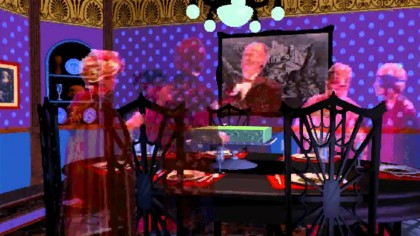
The 7th Guest
Genre: Puzzle
Publisher: Virgin Interactive
Released: 1993
How it shook PC gaming: The game's use of 3D graphics and live action video clips not only ushered in a new era in terms of gameplay standards, but also the need for CD-ROMs.
When released in 1993, this puzzle game was renowned for its compelling graphics and frightening storyline. The game's use of 3D graphics and live action video clips not only ushered in a new era in terms of gameplay standards, but also required storage space – hence the use of not one, but two CD-ROMs. Computer shops soon found themselves selling computers with CD-ROM drives in order to accompany the game, rather than the game to accompany a computer.
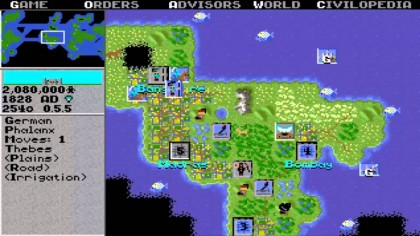
Sid Meier's Civilization
Genre: Strategy
Publisher: Firaxis Games
Released: 1991
How it shook PC gaming: Civilization was the first game to define the strategy genre. You know those concepts — of exploring, gathering resources, and so-on? Yeah — they came from Civ.
The turn-based strategy game is a permanent fixture in PC gaming, but Civilization was the first to define the genre. Here we learned the concepts of exploring, gathering resources, building up an army and, of course, being a royal pain for any neighbours unfortunately enough to share a border with you.
Of course, military action wasn't the only option, as you could also practice diplomacy — thought it was still a good idea to have an army as a backup option . While Civilization offered a similar degree of complexity as SimCity, it did so with prettier graphics and an easier to understand user interface.
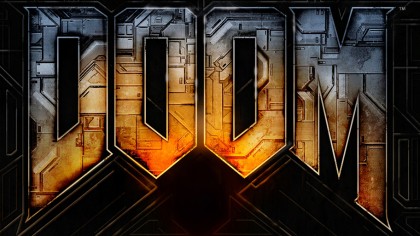
Doom
Genre: FPS
Publisher: id Software
Released: 1993
How it shook PC gaming: The first FPS that most people played. In short, Doom defined the FPS genre and spawned more clones than the game's vast number of hellish demons. From Star Wars: Dark Forces to LucasArt's Outlaws, many games shared Doom's mechanics and visual style.
Strictly speaking, Doom wasn't the first FPS game. For many of us though, it might as well have been. Doom is the first-person shooter that gained traction and influence – so much so that other FPS games at the time were called "Doom clones". By today's standards, Doom looks primitive, but it also demonstrates how the core components of the FPS genre haven't changed in all these years.

SimCity
Genre: Simulation
Publisher: EA
Released: 1989
How it shook gaming: A complex interplay of keeping your infrastructure running and your citizens happy, there had been nothing like SimCity.
These days there are lots of resource management games, such as Farmville, but SimCity was the first. This game was a complex interplay of keeping your infrastructure going and your citizens happy. There hadn't been a game like it before, and its success allowed the author, Will Wright, to go on to create a series of games – not just SimCity, but also Spore, and the latter's procedural generation algorithms were a technological success despite the game's commercial failure. SimCity is still available in various forms on all platforms.
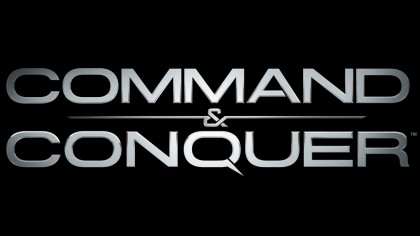
Command and Conquer
Genre: RTS
Publisher: EA
Released: 1995
How it shook gaming: The breakout title for the real-time strategy genre, Command & Conquer combined the elements of strategy and resource management with the pressure of knowing the other player could attack at any time.
Going beyond the relatively sedate pace offered in Civilization, Command and Conquer threw players into making tactical decisions on the fly. Here the computer, or other player, was making moves at the same as you were – leaving you precious little time to sit around and think. Instead, Command Conquer brought us to the now-familiar race to gather the greater share of a map's resources and launch an attack before the enemy.
While games such as Star Wars: Rebel Assault introduced the idea of splicing movie clips in-between game sequences, Command & Conquer's cornily-acted sequences were both entertaining and highly unusual at the time.
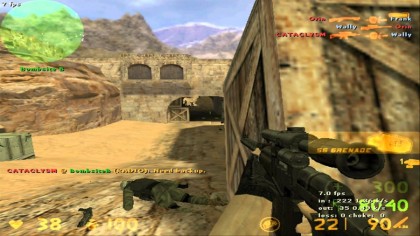
Counter-Strike 1.6
Genre: FPS
Publisher: Valve
Released: 1999
How it shook PC gaming: One of the most popular mods ever, and the most influential multiplayer first-person shooter game of all time. Counter-Strike 1.6 helped eSports thrive, something that its successor Counter-Strike: Global Offensive continues today.
You can't understate just how huge Counter-Strike 1.6 was in its day. It was one of the first mods to be released in its own right, complete in a big old-school cardboard box and everything. Unlike many classic FPS titles, it required to play as a team rather than individually, with the goal of gunning down the opposition. Counter-Strike has also played a large role in the development of professional e-sports, with some of the best players in the world earning tens, or hundreds, of thousands of dollars from competitions.
Counter-Strike's high-powered, one-hit-kill sniper rifle, the AWP, became infamous for enraging opposition players and remains banned from many servers to this day. And then there was its mods — from Gun Game (gradually upgrading to more powerful weaponry after every kill) to zombie and knife-only variations.
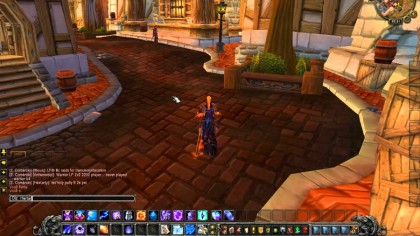
World of Warcraft
Genre: MMORPG
Publisher: Blizzard
Released: 2004
How it shook PC gaming: World of Warcraft has become almost synonymous with the term MMORPG due to the number of players it attracted on the PC. It has even bled over into popular culture.
Based upon its Warcraft series of RPGs, Blizzard's World of Warcraft has become synonymous with the term MMORPG. This game boasts a huge number of subscribers, 6.8 million as of the last earnings report, which shot up to 10 million after the recent Warlords of Draenor expansion. It has even bled over into popular culture with TV shows like The Big Bang Theory often using it as a cultural reference. Some hard-core MMORPG players criticise World of Warcraft for being too linear and not open-ended enough, though.